Christy O'Connor on Cork's lastest defeat: Clare inside forwards got far better service
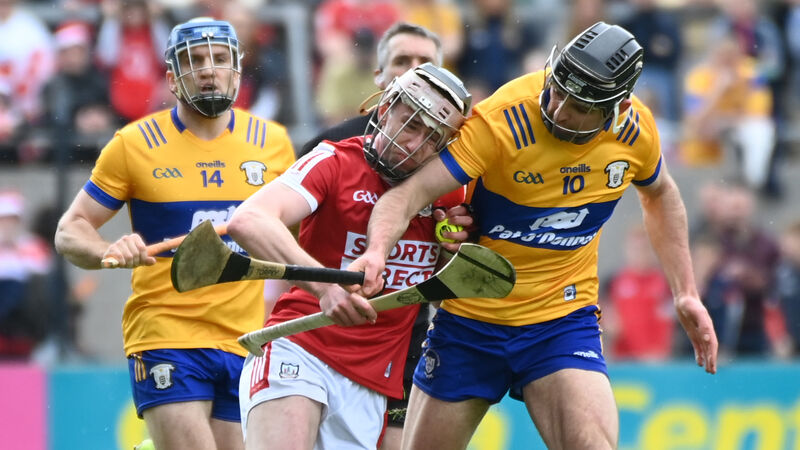
Cork's Ethan Twomey is tackled by Clare's Cathal Malone at SuperValu Páirc Uí Chaoimh. Picture: Eddie O'Hare
AT the final whistle, the frustration and anger came cascading down from the stands and terraces from the Cork supporters in torrents, all aimed in the direction of the referee James Owens.
Patrick Horgan expressed his dissatisfaction to Owens. So did Declan Dalton. The source of that exasperation and vexation was the nine yellow cards and one red dished out to Seán O’Donoghue.
Five yellow cards were doled out to Clare players but there was a marked difference, not just in the numbers, but in the manner of how those cards – and frees - were conceded.
“(O’Donoghue’s) foul was completely unnecessary and it cost Cork,” wrote former referee Brian Gavin in his column on Monday. “Look at the other end of the field where Clare defenders were picking up yellow cards, some they might have felt necessary, but crucially not repeating those fouls and putting their team at risk.
“When they analyse this game in the cold light of day, Cork have to look at themselves, not Owens.”
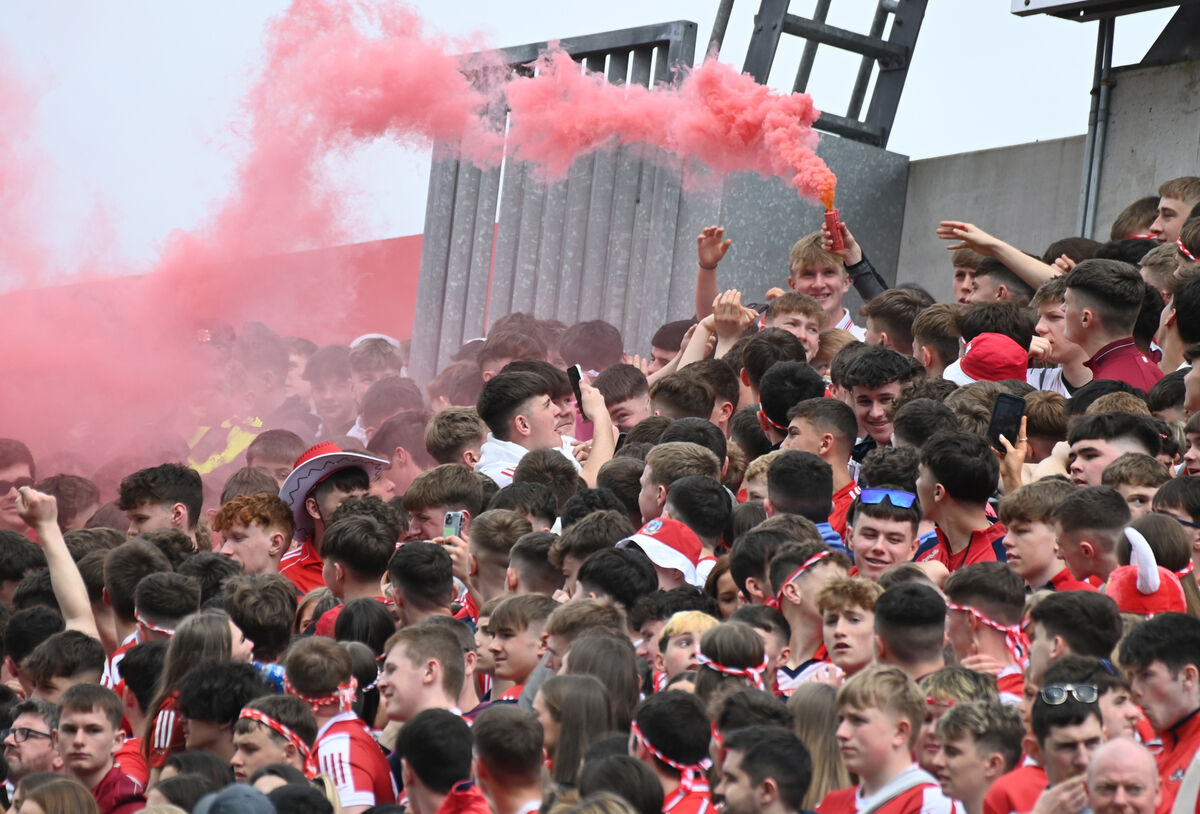
Gavin is right. Cork were bound to feel angry when going so close to winning the match with 14 men for the last 25 minutes, but there is no refuge in blaming the referee. Cork had enough goal chances to win two games. They just didn’t take them.
Even before the sending-off, Cork had gained the initiative and had built up a huge surge of momentum. And then they surrendered it – in a flash.
Behind by seven points, Clare had reduced the deficit to just one inside five minutes. In that short period, Clare had seven shots to Cork’s one, outscoring Cork by 1-4 to 0-1 in that blitz, with just one point coming from a free.
Three of those points came off the Cork puck-out, with 1-1 stemming from turnovers. O’Donoghue’s sending off shortly afterwards left Cork in a perilous position but the game had already turned in Clare’s direction.
Although Cork scored 2-10 from their own puck-outs, they still struggle to limit the damage that the opposition inflict from the possession they lose on their own restart; Cork coughed up 2-7 from their own puck-out. On top of that, Clare sourced 0-12 off their own restart.
Cork were a man down in defence at that stage but the first of those goals (Clare’s second from Shane O’Donnell) will have infuriated Pat Ryan when he watches the footage back.
David Fitzgerald and Diarmuid Ryan opened up the scoring opportunity in front of the North Stand but Ryan was still 53 metres from goal once he secured possession. Once he took off with intent, four Cork players in a line across the pitch behind Ryan didn’t chase back anywhere as hard as they needed to.
Those players had gone man-to-man on Clare players but more urgency in the chase back would at least have got a couple of them closer to O’Donnell before he pulled the trigger.
Cork were never able to get a handle on O’Donnell, but he wasn’t the only one. O’Donnell, Mark Rodgers and Peter Duggan were unmarkable. From a combined 38 plays, those three Clare players either scored, engineered or were fouled for a whopping 3-17.
With Clare having such a dominant platform around the middle for so much of the game, especially in the second half, Clare were always able to feed O’Donnell and Aidan McCarthy inside with more quality ball.
Cork did do a lot of damage with their running game but their full-forward line was still underserviced, especially Alan Connolly. He only had four possessions but a score came off each one.
Patrick Horgan only had seven possessions but he scored 1-1 and was fouled for three frees. Despite the speculation around Horgan and Seamus Harnedy beforehand, they were still two of Cork’s best players – again.
Cork did get a decent amount of ball into their full-forward line in the first half, but too much of it was either misdirected, or read and defended better by the Clare full-back line.
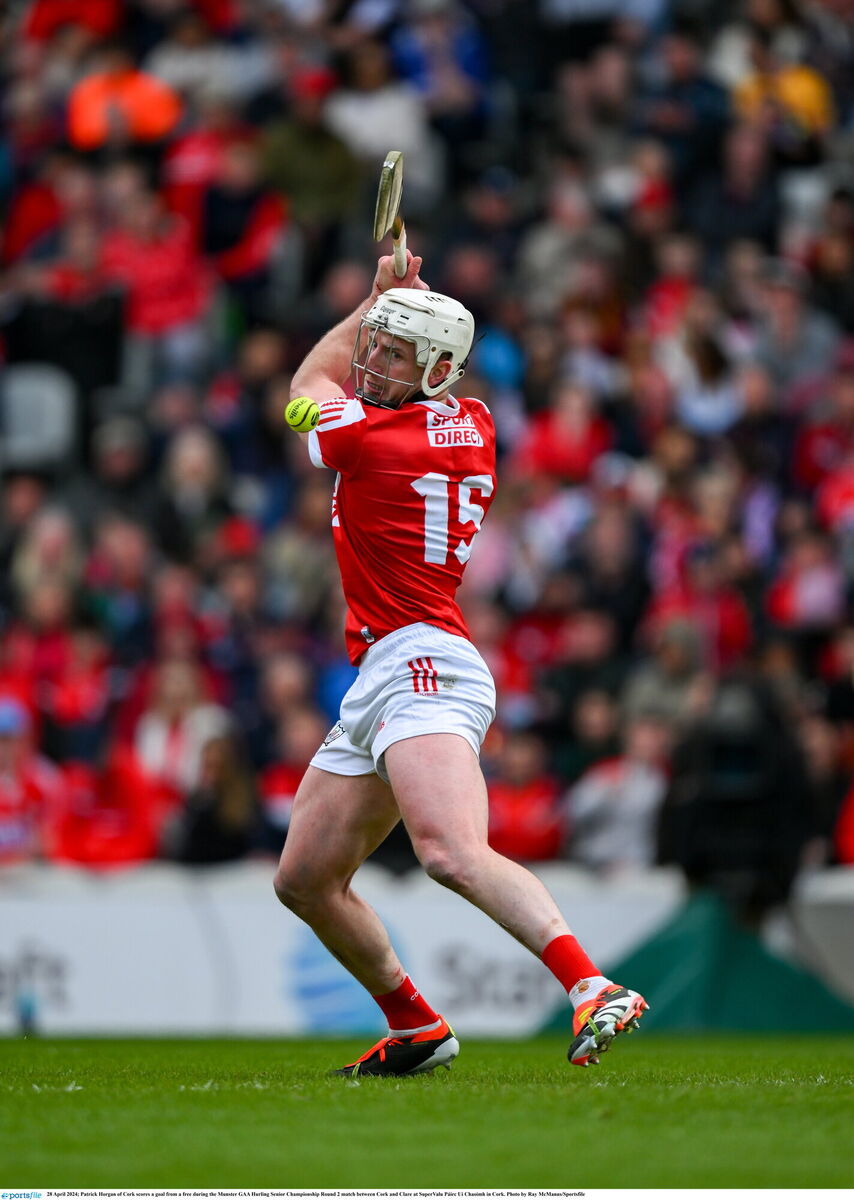
Cork only won one of those first five balls. Connolly went 23 minutes without a possession but as soon as he snapped that first long ball and nailed a point off that possession, a flick appeared to switch.
Cork mined 0-4 from that direct supply inside in the 10 minutes before half-time. That number could have been higher because a Connolly flicked attempt just cleared the crossbar while Eibhear Quilligan made a fine save from Horgan.
Cork created four decent goalscoring chances in that opening half but two of those missed chances from Darragh Fitzgibbon and Horgan were even costlier when Clare sourced two points directly off those turnovers.
Still, most of Cork’s energy and momentum either side of half-time stemmed from the Clare puck-out, which was buttressed by Horgan’s goal.
The game was in Cork’s control by then and, while they were against a strong breeze and later went down to 14 men, they never got that control back once they lost it.
The most admirable aspect of the performance was how much Cork tried to hunt Clare down, even when the game looked to be gone from them twice in the latter stages.
Cork did so much right.
Yet Cork can’t expect to ship the huge volume of scores they’re conceding and expect the results to be different than they have been.
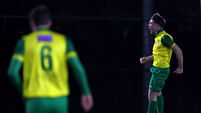
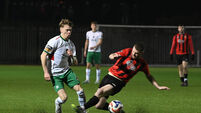
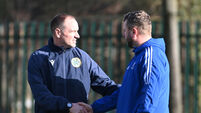
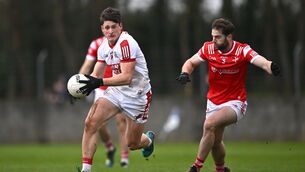



 App?
App?







